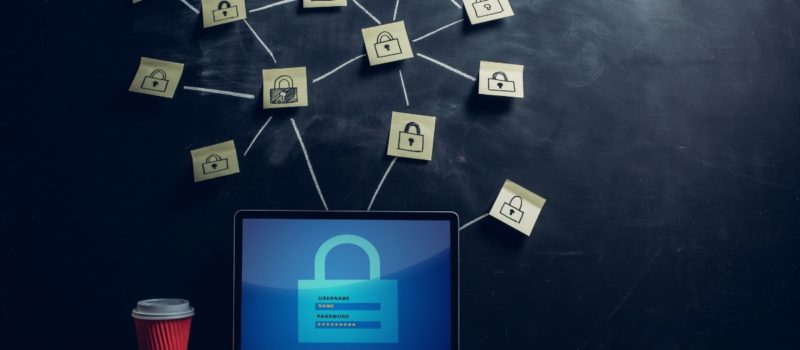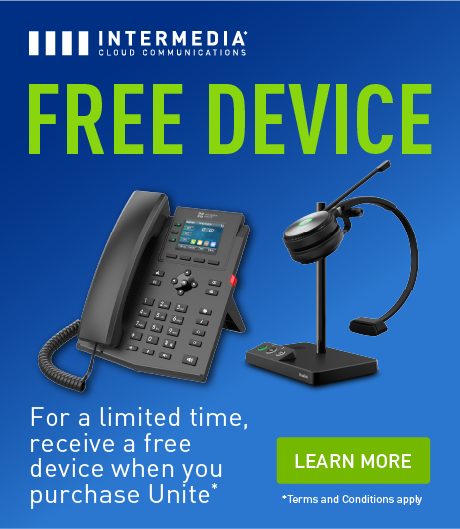The rapid shift to remote and hybrid work has led to increased digital security concerns. Whether your group is wholly in-office, fully remote, or somewhere in between, these threats mean your business must have secure unified communications.
Any delay in securing your communications could have steep costs. In fact, the average cost of a data breach continues to rise and is now $9.48 million for companies in the United States.
Take a look at four unified communications security threats you should be guarding against and how to combat them.

Key Takeaways:
- Denial of service and theft of service attacks remain top threats to digital communications.
- You should ensure that your provider and employees stick to strict security protocols.
- For secure unified communications, you need a provider that protects you across seven pillars.
The Top 4 Threats to Secure Unified Communications
Cyber attacks take many different forms. Still, the most common ones fall into one of the following four categories.
1. Distributed Denial of Service Attacks
DDoS attacks bombard your unified communications service with traffic, such as incoming messages or calls. The overload leads to poor call quality, lost connections, and even service outages.
Some attackers request a ransom while others seek a competitive advantage. Other hackers use DDoS tactics to distract your security team while engaging in a more sinister attack, such as stealing confidential data.
2. Theft of Service
Modern scammers may attempt to infiltrate and use your phone service so authorities cannot trace the calls back to them. As a result, you might have to prove that you are not the source of the scam calls. This wastes valuable time and can create legal issues.
3. User or System Vulnerabilities
A security threat could come from inside your organization. However, the problem is not necessarily employees trying to steal or misuse data for personal gain.
In many cases, poor access controls create vulnerabilities. Weak passwords or unsecured devices can leave an “open door” for cyber attackers into your once-secure unified communications system.
Your communications provider plays a significant role in this, too. Does the system require regular password updates and multifactor authentication?
More importantly, how secure (physically and digitally) are your provider’s data centers? A lack of compliance or up-to-date defenses compromises the security of your system.
4. New Phishing and Malware Techniques and Tools
Hackers are constantly coming up with new ways to do their dirty deeds. These individuals are often all too eager to share their latest techniques on the dark web.
In general, these take the form of phishing or malware. Malware is a program a user downloads into your system that sends confidential information back to the hacker. An employee might accidentally do this by handling company business on an open Wi-Fi network.
Phishing is when a scammer tries to get you to divulge private account details. This strategy has dramatically evolved from the “foreign prince” email scams. For instance, the hacker could use artificial intelligence to mimic a voice you recognize and request sensitive account credentials to intrude into your system.

7 Pillars of Security and Protection for Neutralizing Unified Communications Threats
The best way to counteract threats to secure unified communications is to work with a world-class provider that handles security for you. A worry-free platform with the following elements minimizes the impact of cyber attacks.
1. Full Data Security Through Access Control and Encryption
Whether in storage or during transmission, you need to count on encrypted emails, files, video conferencing, and voice calls. Make sure your vendor uses industry-standard protocols, such as TLS, SSL, and WebRTC, to keep interlopers out of your confidential info.
2. Server-Side and Client-Side Backups
Never fear losing your data in the event of an outage or sudden emergency. A secure unified communications provider backs up your data on servers in separate locations. Likewise, your admin portal should allow you to restore any past version of a file or prevent permanent deletion by unauthorized parties.
3. Endpoint Protection Across Devices
Email services require full spam, virus, and malware protection that instantly receives the latest updates from your provider. Furthermore, endpoint detection and response capabilities have processes to respond immediately to any suspicious activity on any kind of device.
4. Identity Protection Protocols
Admins must be able to selectively enable service permissions for end users. Within the portal, password management should be simple as well. Administrators can create policies to determine the strength of passwords and expiration periods.
5. Complete Infrastructure Security
Your provider should guarantee complete physical and digital security for its data centers, including:
- Employee background checks and restricted server access
- 24/7 on-site security guards and closed-circuit television
- Redundant internet service providers for DDoS protection
Additionally, independent sources should validate all claims that you have truly secure unified communications.
6. Data Control and Privacy
A comprehensive data policy ensures you can do international business without violating the compliance standards of key markets in the U.S. and European Union. For example, if a private cloud is necessary for customized security, that is one more feature you should be able to request.
7. Continuous Security Management
Automatic logs, advanced analytics, and real-time notifications help you and your provider quickly identify and address any threats. Behind the scenes, your vendor conducts penetration testing and code reviews to eliminate vulnerabilities.
Video Embed: Intermedia Triple Shield Security Helps Keep Your Business Secure
Get a Worry-Free Platform for Secure Unified Communications
Intermedia guarantees comprehensive protection across these seven key pillars of data and physical security. To sign up for our secure unified communications as a service platform or learn more, contact one of our agents for a callback today.
September 19, 2024
Explore other posts on these topics: Security Unified Communications




